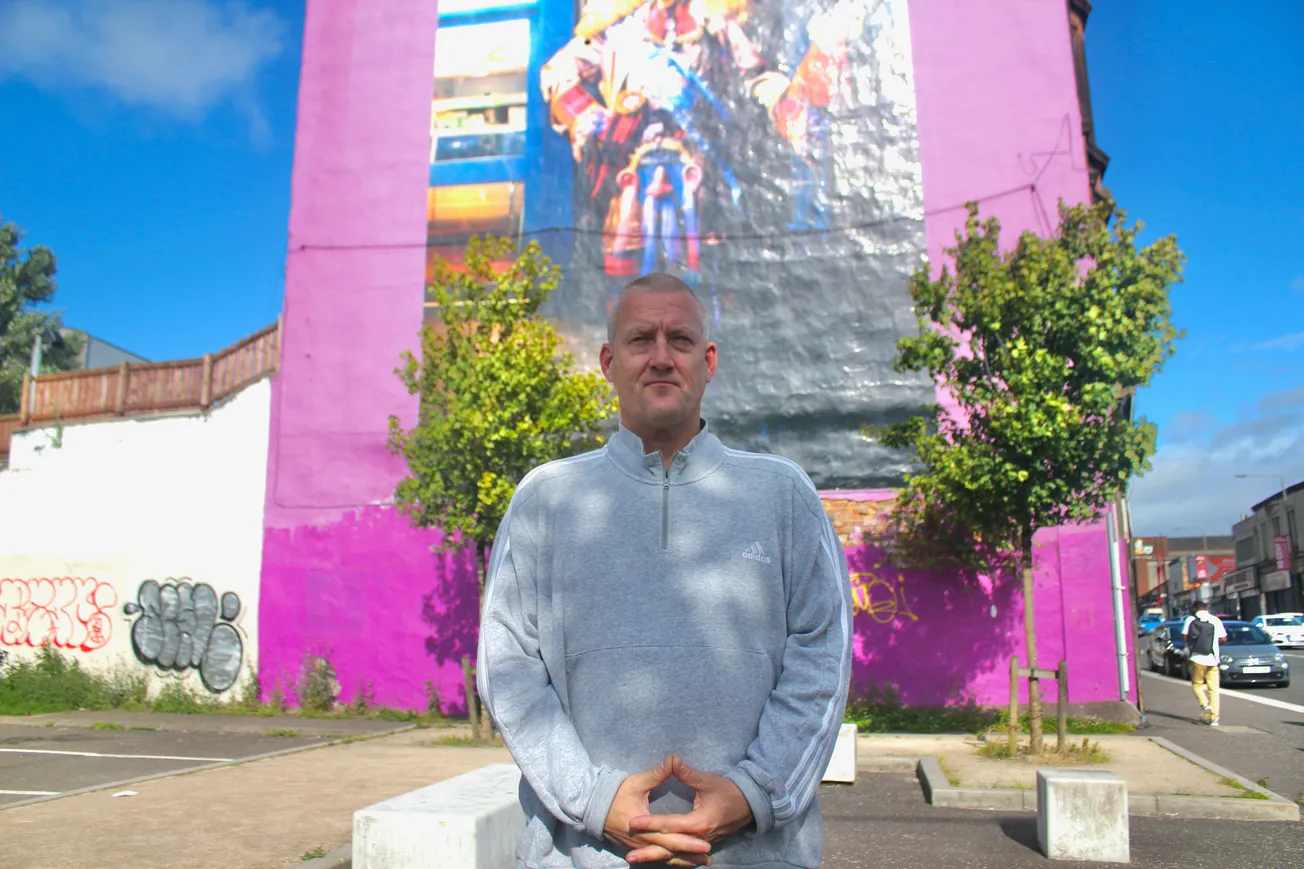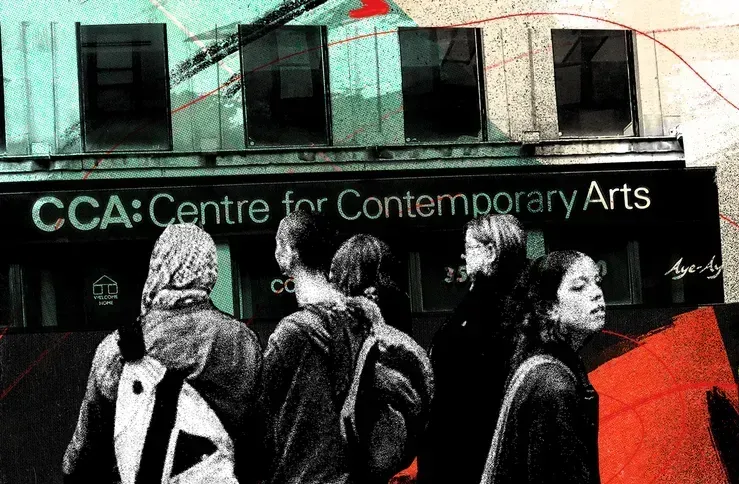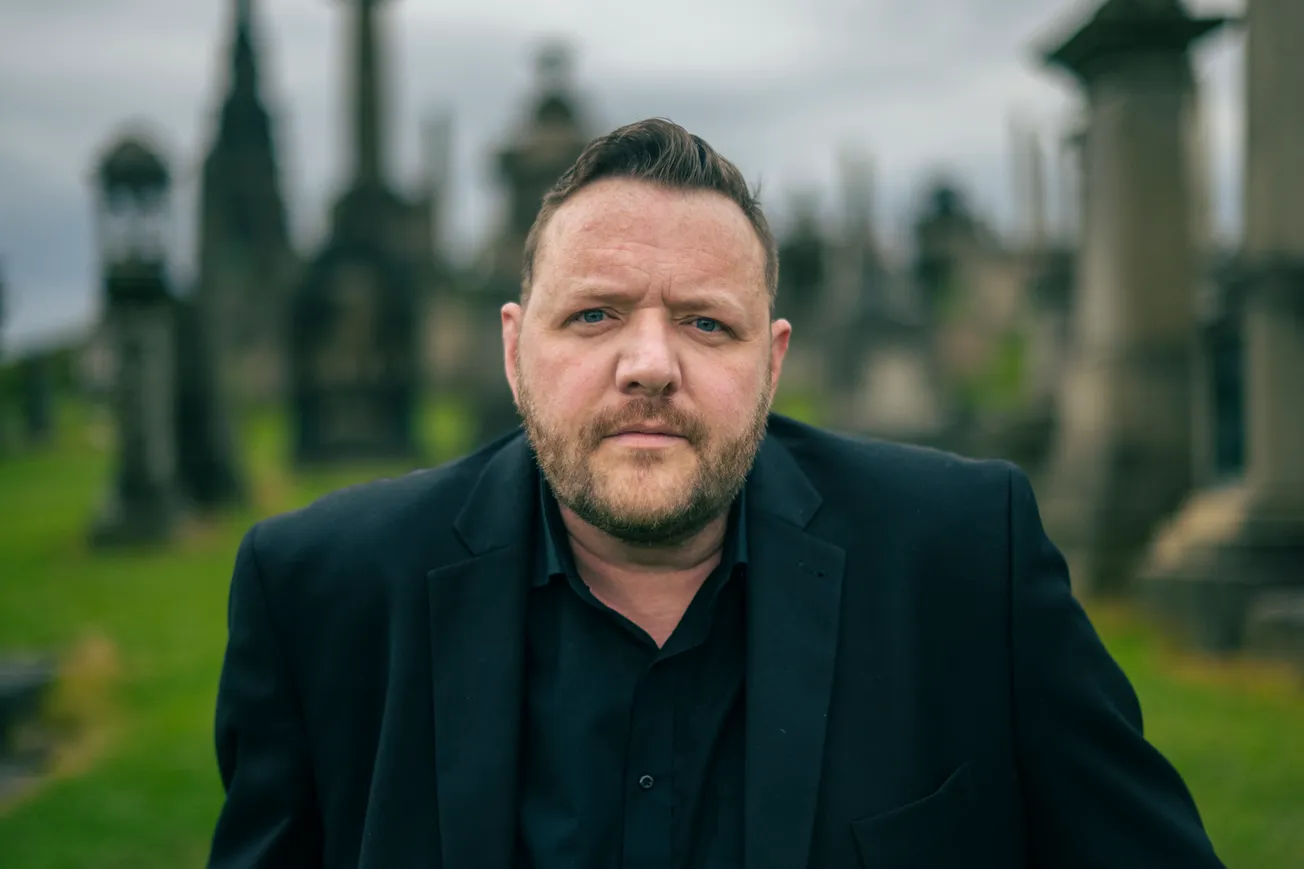Neil Smith bounds down the Gallowgate with the energy of an athlete, all smiles, Glesca charm and gesticulating arms as he blethers away. What he’s telling me, though, is slightly less cheery: the story of how people used to be hanged at the Tolbooth Steeple, or have their ears nailed to the door at the Mercat Cross for slander. “People used to come with packed lunches and watch people get hanged and all that, but think about it back then, they didn’t have a telly — so if your neighbours an that are aw gaun oot, you’ll go ‘mon we’ll go watch this’. It's crazy, but that's the way society was back then,” Smith says with disbelief and a grin.
The 47 year old is tall and broad-shouldered, with short grey hair and blue eyes; today, you get the sense he makes an instantaneous good impression on everyone he meets. But it’s certainly not always been that way.
Smith is taking me on a tour about the city’s best-kenned faces and places, as part of the social enterprise Invisible Cities. Like everyone working as a tour guide with the organisation, he’s experienced homelessness — sleeping rough and struggling with addiction before learning to show people the grittier underbelly of his city. Smith is their newest tour guide in Glasgow, running one of the pre-existing tours around the eastern end of the city centre and the Calton, with plans to create his own.
As we walk, he recounts his story, with the patterns familiar to many who end up on the street. At 13 years old, his mum threw him out the house, and he was put in intermediate care. Ever since Smith can remember, he’d been branded a problem and a bully, automatically seen as intimidating because of his 6’4” stature — the youngest of three brothers, yet quickly the biggest. His family offered him little support. “You get told for years and years, not just in the house but out the house — by teachers and fake friends you've known your whole life — that you're never gonnae amount to anything, you’re never gonnae be good at anything. It sinks in,” he says. In care he was taught how to cook, but he’d already been fending for himself since he was eight years old.
A year after he left his family, his oldest brother was stabbed in the neck. His heart stopped three times on the operating table, but somehow he survived. “After that happened, I could realise myself, well, that's probably the way you’re gonnae be gaun,” Smith says casually, the sun dappling his face under a tree on Glasgow Green. “Then I hit that wee fork in the road as they say — go that way or go that way.”
Smith’s life was still hurtling down the wrong track, and he could feel himself being pulled towards gangs and a life of violence. He was terrible at it, though — trying to convince now notorious gangsters not to steal cars that had baby seats in the back. And he didn’t take kindly to orders.
Glasgow deserves great journalism. You can help make it happen.
You're halfway there, the rest of the story is behind this paywall. Join the Bell for full access to local news that matters, just £8.99 for the first 3 months.
SubscribeAlready have an account? Sign In






